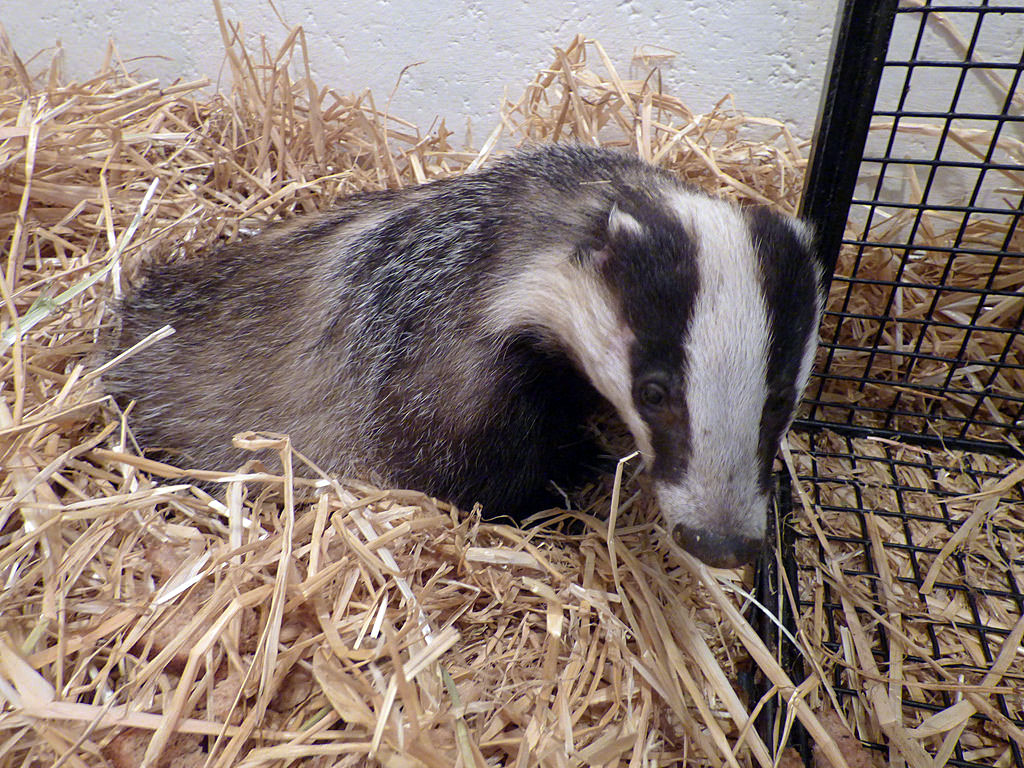
Badgers are adored creatures we often encounter. Despite their charm, they are known for their strong will and often create issues in residential neighbourhoods. This includes damaging fences, uprooting bulbs, digging setts in unsuitable locations, and finding themselves in precarious situations like falling into basements or embankments, facing dog attacks, or getting hit by vehicles. While it’s common to spot the occasional deceased badger on the roadside, live sightings are rare. The estimated population stands at 485,000.
Do not attempt to handle or transport one.
Badger road incidents can happen throughout the year, with spring and autumn being the most prevalent periods. These incidents often coincide with dusk falling during busy traffic hours in the mornings and evenings. Handling badgers can be risky, as some people have encountered unconscious badgers, placed them in their car’s passenger seat or trunk, only to have to stop their vehicle, exit, and seek assistance when the badger regains consciousness and begins moving erratically around the car.
If you come across an injured badger on the road:
Please avoid handling or moving badger casualties. Definitely do not place them in you car loose on the seat on your car – even if they are unconscious. They may come and in a frightened state they may cause you injury. Please call our rescue line 0300-10-26-999 immediately if they are injury and in need of urgent help.
Badgers caught in snares, entangled in netting, or wire should not be freed and released immediately. It is crucial to call for help promptly, as these situations are considered emergencies. Applied pressure or rubbing on the skin from items like ropes or snares can lead to pressure necrosis, which may not be visible at first but can manifest 24-48 hours later if left untreated. It is essential for these animals to receive observation and care for a minimum of 24 hours to ensure their safety and well-being. Ligature wounds and pressure necrosis have the potential to be life-threatening.
Seek assistance promptly. Try to cover the animal with a blanket or a large towel, ensuring a safe distance to prevent any bites. If the badger is caught but can still move, it might be best to step away and let it be. Avoid standing too near the animal and keep noise levels low to prevent scaring the creature.
Dead badgers should be reported to the Badger Trust at https://www.badgertrust.org.uk/report. In East Sussex, WRAS does not handle dead badgers except in cases of suspected illegal death. It is the responsibility of the land or property owner to manage the disposal of a deceased badger if found on their premises. However, your local council or veterinary centre might be able to offer assistance with disposal. If you come across a dead badger on the road, it should be reported to your district, borough, or city council for proper disposal, as they are obligated by European law to handle the disposal of deceased animals found on the road.
WRAS does not advocate for the regular feeding of badgers in gardens due to the issues it may lead to. Badgers, like all animals, will reproduce based on the available food supply. While occasional feeding is acceptable, providing large amounts of food can create complications. This practice may result in badgers conflicting with humans and their pets.
It’s important to note that badgers are wild animals and are not aware of human property boundaries. They have likely roamed the land much longer than you have lived there. Badgers and their dens are safeguarded by law.
To address this issue, you can install sturdy fencing, secure gates, and utilize ultrasonic deterrent devices. However, these methods might impact other wildlife in the area. There are no legally proven chemicals as badger deterrents. Implementing electric fencing and a badger-resistant metal fence buried about 1 meter deep in the ground can help prevent badgers from entering a garden.
If you need further advice please contact your local badger group via:


